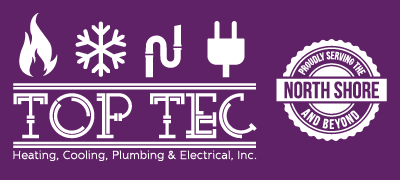
We spend a lot of time in our homes. In fact, the Environmental Protection Agency (EPA) has estimated being indoors accounts for 90% of our schedule. Having said that, the EPA also has found your indoor air can be three to five times worse than outdoors.
That’s because our homes are firmly sealed to boost energy efficiency. While this is good for your utility bills, it’s not so good if you’re a part of the 40% of the population with respiratory allergies.
When outdoors ventilation is insufficient, pollutants including dust and volatile organic compounds (VOCs) can get stuck. As a consequence, these pollutants can aggravate your allergies.
You can improve your indoor air quality with clean air and usual cleaning and vacuuming. But if you’re still having issues with symptoms while you’re at home, an air purifier may be able to help.
While it can’t remove pollutants that have settled on your furniture or carpet, it can help purify the air circulating throughout your house.
And air purification has also been scientifically verified to help reduce some allergic symptoms, according to the American College of Allergy, Asthma and Immunology. It may also be appropriate if you or a loved one has a lung condition, like emphysema or COPD.
There are two options, a portable air purifier or a whole-home air purifier. We’ll examine the advantages so you can determine what’s right for your residence.
Whole-House Air Purifier vs. Portable Air Purifiers
A portable air purifier is for a single room. A whole-house air purifier works with your home comfort unit to treat your entire residence. Some types can work independent when your heating and cooling equipment isn’t on.
What’s the Best Air Purifier for Allergies?
Look for a model with a High Efficiency Particulate Air (HEPA) filter. HEPA filters are used in hospitals and deliver the best filtration you can find, as they catch 99.97% of particles in the air.
HEPA filters are even more useful when used with an ultraviolet (UV) germicidal light. This dynamic mixture can destroy dust, dander, pollen and mold, all of which are standard allergens. For the best in air purification, think over a system that also has a carbon-based filter to decrease household vapors.
Avoid using an air purifier that generates ozone, which is the top component in smog. The EPA cautions ozone may irritate respiratory troubles, even when released at small settings.
The Allergy and Asthma Foundation of America has made a checklist of questions to ask when buying an air purifier.
- What can this purifier extract from the air? What doesn’t it take out?
- What’s its clean air delivery rate? (A higher number means air will be cleaned more quickly.)
- How frequently does the filter or UV bulb need to be switched]? Can I finish that without help?
- How much do replacement filters or bulbs cost?
How to Reduce Seasonal Allergy Symptoms
Want to receive the {top|most excellent|best] outcome from your new air purification equipment? The Mayo Clinic suggests taking other procedures to decrease your exposure to seasonal allergy triggers.
- Stay in your home and keep windows and doors shut when pollen counts are high.
- Have other family members cut the lawn or pull weeds, since this work can aggravate symptoms. If you are required to do this work on your own, you may want to consider trying a pollen mask. You should also rinse off without delay and put on new clothes once you’re finished.
- Avoid stringing up laundry outside.
- Run air conditioning while at your house or while you’re on the road. Consider adding a high efficiency air filter in your home’s home comfort equipment.
- Even out your home’s humidity levels with a whole-house dehumidifier.
- Hardwood, tile or linoleum are the best flooring types for decreasing indoor allergens. If your house has carpet, add a HEPA filter on your vacuum cleaner.
Let Our Professionals Manage Your Indoor Air Quality Needs
Ready to move forward with adding a whole-house air purifier? Give our professionals a call at 847-362-0262 or contact us online to schedule an appointment. We’ll help you choose the ideal equipment for your house and budget.
